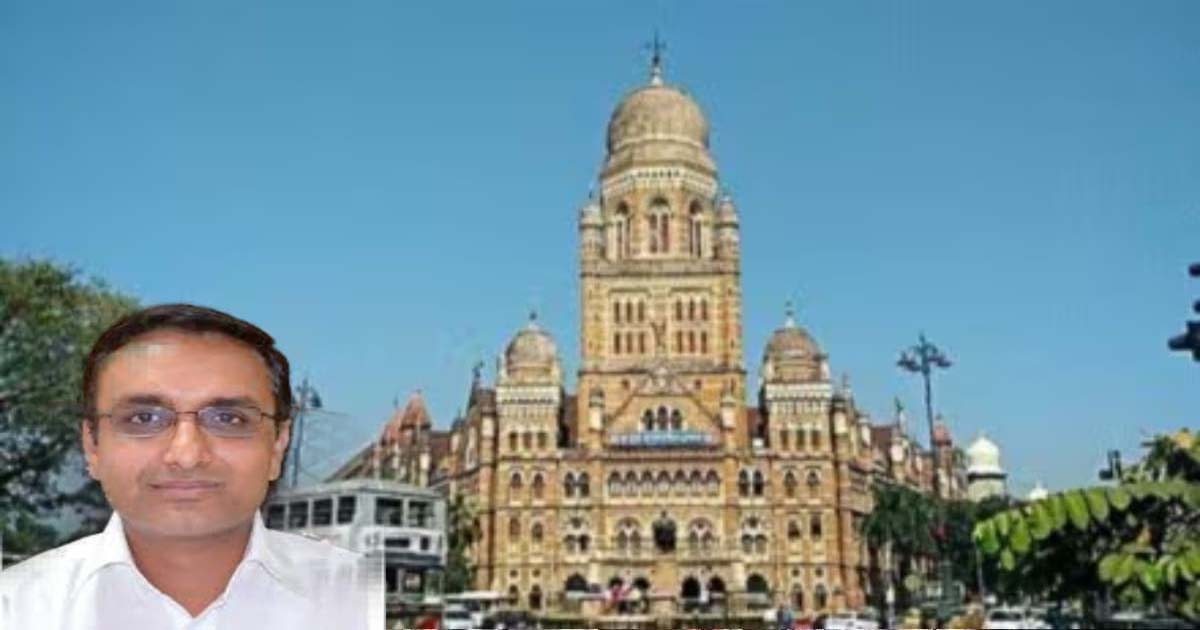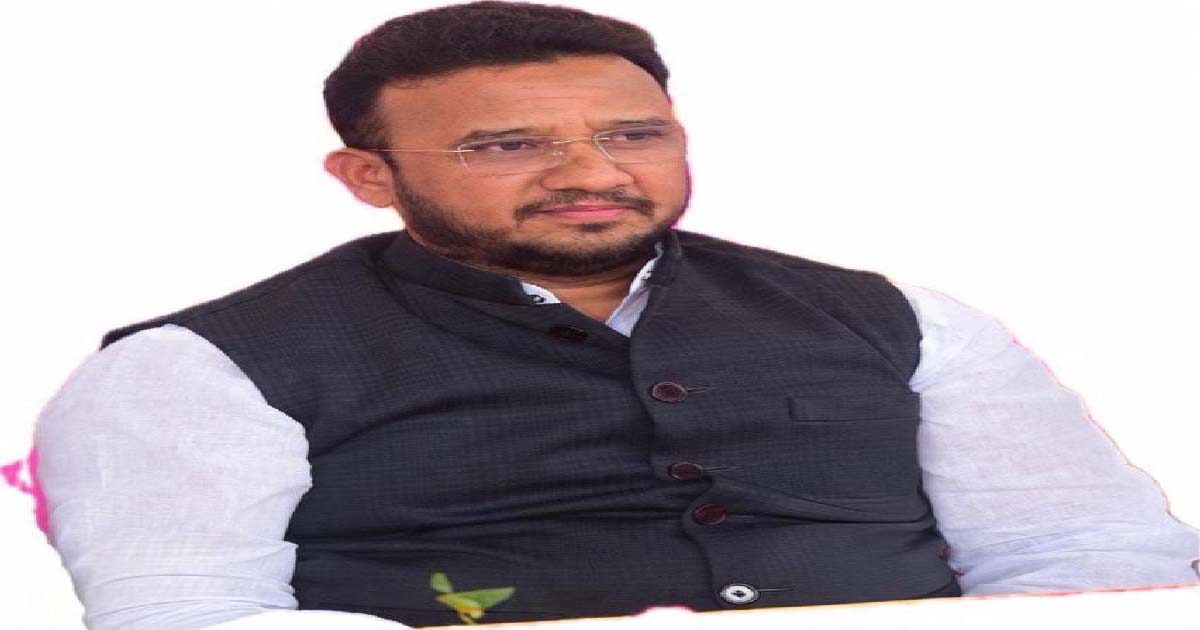Maharashtra
Mumbai startup develops India’s first universal gene test for infectious disease

Mumbai-based health-tech startup HaystackAnalytics has developed the first of its kind universal infectious diseases (ID) gene test to identify existing and emerging infections, the company said on Monday.
The company is supported by the Department of Science and Technology, as well as several private healthcare players.
To identify infections, the company deploys Next-Generation Sequencing (NGS) technology and Artificial Intelligence (AI), and also provides information on drug resistance to support and identify correct treatment options for patients.
The new Universal Infectious Diseases test will be rolled out with their current partners in a phased manner over the next three months, the company said in a statement.
It will initially be targeted at identifying and treating sepsis in Intensive Care Unit (ICU) patients, but gradually be made available to anyone suffering from a fever of unknown origin, by eradicating the need to conduct multiple tests.
The test comes at an opportune time, as Covid-19 pandemic highlights the need for better diagnostic technologies, appropriate antibiotic use, and the renewed importance of infection prevention strategies.
“The test enables rapid (within hours) and comprehensive (covering nearly all known bacterial and fungal pathogens) screening in a near to point of care deployment. Leveraging the power of next generation sequencing and AI, the team of scientists and engineers at Haystack has been able to eliminate the need for a redundant and expensive battery of tests, with a single test,” Dr. Anirvan Chatterjee, Co Founder and CEO of HaystackAnalytics, said.
“Our single point focus is to prevent each and every death caused due to treatable infections. Genomics has the potential to reduce trial and error in disease management and bring equality of access to high quality healthcare,” he added.
In the past, HaystackAnalytics had partnered with various diagnostic centers and over 20 hospitals including AIIMS, to introduce their sequencing-based clinical products for Tuberculosis and Covid in the past.
It is while working on two of the most debilitating infectious diseases — Tuberculosis and Covid — the company said it recognised the true burden of inaccurate diagnosis of infections in India and the world.
While the novel coronavirus infected and killed millions of people across the globe, there are various other infectious diseases that continue to plague India.
In particular, India accounts for the largest number of sepsis cases (11.3 million) and sepsis-related deaths (2.9 million) in the world, as per a global study published in the Lancet in 2020.
Despite having a wide range of antibiotics and antifungal medicines, sepsis is a life-threatening organ failure. It occurs when the body ends up injuring its own tissues and organs, in response to an infection, leading to shock, disability, multi-organ failure, and even death if left untreated in the early stages.
“A large proportion of these deaths can be avoided by early and accurate identification of the pathogen causing the infection. Haystack’s UID test has been developed to solve this exact problem,” Chatterjee said.
Maharashtra
Mumbai Additional Municipal Commissioner Amit Saini has been transferred and replaced by IAS officer Avinash Dhakne following allegations of a “cash-for-transfer” scam.

The transfer comes after an exposé revealed alleged corruption involving the reshuffling of over 160 engineers in the Brihanmumbai Municipal Corporation (BMC), which was subsequently stayed by the government.
A complaint was filed by activist Sanjay Satam to Municipal Commissioner Bhushan Gagrani, alleging that Saini was charging between ₹5 lakh and ₹40 lakh to transfer engineers.
Saini, a 2007-batch IAS officer, had been posted in the BMC since March 2024.
Avinash Dhakne, a 2017-batch IAS officer, previously served as the member secretary of the Maharashtra Pollution Control Board (MPCB) and has taken charge.
The transfers followed demands from activists for action, with Galgali thanking Chief Minister Devendra Fadnavis for the decision.
Activist Satam stated that the transfer is insufficient and called for a departmental and Anti-Corruption Bureau (ACB) investigation into the matter.
Maharashtra
Maharashtra Waqf Board approached the Tribunal regarding extension of date, don’t worry, 100% registration is assured: Chairman Sameer Qazi

Aurangabad: (F.A.) The last date for registration on the UMID portal for all registered waqf organisations in Maharashtra, including mosques, dargahs and graveyards, was today, December 5, 2025, which has now expired. Although most of the waqf organisations in Maharashtra have been registered on the portal, some organisations are still missing out due to unavailability of records or other paper errors. In view of this situation, Maharashtra State Waqf Board President Sameer Qazi has appealed to the concerned trustees, trustees and the Muslim community not to panic or believe in any rumours. He has confidently said that: The Waqf Board will complete the registration of every institution. Although the Supreme Court has refused to extend the date, it has allowed the Waqf Tribunal (Waqf Court). The State Waqf Board has approached the tribunal and we are confident that justice will be done there and the deadline for registration on the UMID portal will definitely be extended. Chairman Qazi expressed his firm resolve and further said that the board will not sit in a hurry without the registration of every Waqf institution in the state being completed.
Maharashtra ranks second in the country: 80 percent registration completed.
The registration of all organizations related to the Waqf Board has been completed at a fast pace on the UMID portal. The state of Maharashtra ranks second in the country in terms of registration of Waqf institutions. There are a total of 36 thousand registered Waqf properties in Maharashtra, out of which about 30 thousand (80 percent) properties of organizations have been successfully registered on the UMID portal. All the officers and staff of the Waqf Board have made additional arrangements and completed the registration process. Not only this, but 300 young technicians were hired at the Hajj House in Chhatrapati Sambhaji Nagar to expedite registration on the Omid portal, which is a commendable effort by the board.
Waqf Tribunal issues urgent notice to the central government, seeks response by December 10
Immediately after the Supreme Court’s direction, the Maharashtra Waqf Board approached the Waqf Tribunal. The tribunal has issued a notice to the central government while hearing the matter urgently. The notice asks the centre: “Why should the deadline not be extended?” and has directed it to file its reply by December 10. Due to this urgent action and notice by the tribunal, there is a strong possibility of an extension in the deadline, which has brought a big relief to the waqf institutions.
Don’t pay attention to rumors, time has not been extended.
A statement by Union Minority Affairs Minister Kiren Rijiju was circulating on TV and social media throughout the day today, in which he said that although the trustees have not received any relief, there is hope of getting an extension in time from the tribunal. He also said that no penalty will be imposed on the institutions that approach the tribunal. President Sameer Qazi, while explaining this statement, said: The Minister has not extended the time for uploading on the portal, but has only set a time of three months for checker and approval for those institutions that have already been registered. He explained that false news about the extension in time is being spread on social media, so do not be fooled by any kind of hesitation and until the official extension is done, the institutions must complete the uploading process.
Maharashtra
Mumbai Weather Update: AQI At 183 In ‘Unhealthy’ Category As Temperature Hovers Around 27°C

WETHER
Mumbai’s air quality deteriorated to the unhealthy category on Friday morning, even as the city witnessed clear and sunny weather, according to real-time air quality monitoring data updated at 8.30 am. As per aqi.in, the Air Quality Index (AQI) stood at 183, placing it well within the unhealthy range and raising concerns for vulnerable groups across the city.
Data showed PM2.5 levels at 100 micrograms per cubic metre and PM10 levels at 130 micrograms, both well above safe limits prescribed by health authorities. Elevated particulate matter is known to penetrate deep into the lungs, posing serious health risks, especially to children, the elderly and those with respiratory or cardiac conditions.
Other pollutants, including carbon monoxide at 266 parts per billion, nitrogen dioxide at 16 ppb, ozone at 14 ppb and sulphur dioxide at 7 ppb, remained within controlled limits. However, high particulate matter alone is sufficient to cause breathing discomfort and eye irritation.
The city recorded a temperature of 26 to 27 degrees Celsius, with humidity around 54 per cent and wind speed at nearly 16 kmph. While the weather remained pleasant with no rainfall forecast, the atmospheric conditions failed to prevent the accumulation of fine dust particles in the lower air layers.
The seven-day outlook shows maximum temperatures ranging between 28 and 31 degrees Celsius, with clear skies continuing through the week. Despite the sunshine, pollution levels are expected to remain volatile due to vehicular emissions, construction dust and seasonal factors.
Doctors advise residents to limit prolonged outdoor exposure, especially during morning and late evening hours when pollution concentration tends to be higher. People experiencing coughing, throat irritation or breathlessness are urged to seek medical attention immediately. Use of masks, air purifiers indoors and adequate hydration has been strongly recommended.
Environmental groups have once again urged civic authorities to intensify road dust control, monitor construction activity strictly and regulate traffic emissions. Citizens are also being encouraged to use public transport and avoid unnecessary vehicular travel during peak hours.
With winter setting in, experts warn that Mumbai may witness more frequent unhealthy air days unless immediate mitigation steps are implemented.
-

 Crime3 years ago
Crime3 years agoClass 10 student jumps to death in Jaipur
-

 Maharashtra1 year ago
Maharashtra1 year agoMumbai Local Train Update: Central Railway’s New Timetable Comes Into Effect; Check Full List Of Revised Timings & Stations
-

 Maharashtra1 year ago
Maharashtra1 year agoMumbai To Go Toll-Free Tonight! Maharashtra Govt Announces Complete Toll Waiver For Light Motor Vehicles At All 5 Entry Points Of City
-

 Maharashtra1 year ago
Maharashtra1 year agoFalse photo of Imtiaz Jaleel’s rally, exposing the fooling conspiracy
-

 National News1 year ago
National News1 year agoMinistry of Railways rolls out Special Drive 4.0 with focus on digitisation, cleanliness, inclusiveness and grievance redressal
-

 Maharashtra1 year ago
Maharashtra1 year agoMaharashtra Elections 2024: Mumbai Metro & BEST Services Extended Till Midnight On Voting Day
-

 National News1 year ago
National News1 year agoJ&K: 4 Jawans Killed, 28 Injured After Bus Carrying BSF Personnel For Poll Duty Falls Into Gorge In Budgam; Terrifying Visuals Surface
-

 Crime1 year ago
Crime1 year agoBaba Siddique Murder: Mumbai Police Unable To Get Lawrence Bishnoi Custody Due To Home Ministry Order, Says Report












